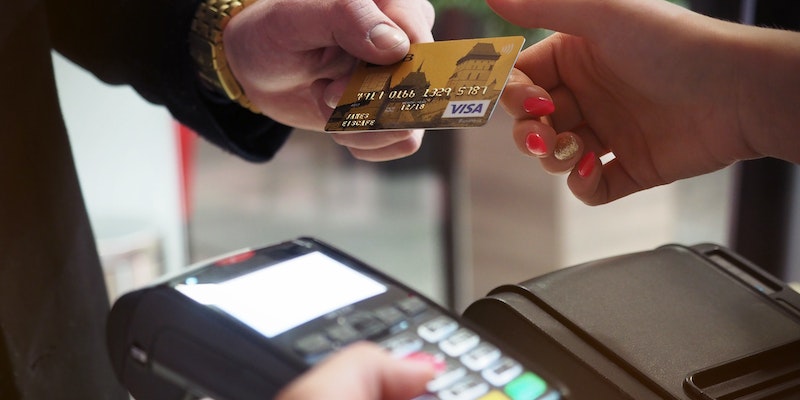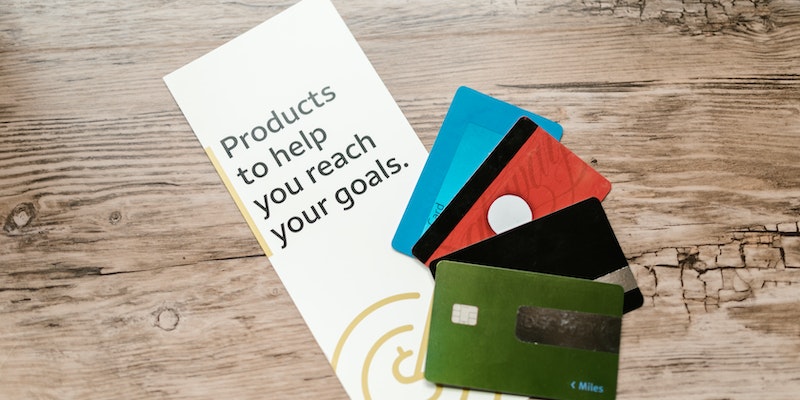An Insight into Debit Cards: Functions, Costs, and Operation
Triston Martin
Oct 23, 2023
A debit card, often called a check or bank card, can replace cash and credit. Your bank issues it for rapid checking account withdrawals. Debit cards deduct money from your bank account and allow in-person as well as online transactions. They interface smoothly with mobile wallet apps, making mobile payments easy. Debit cards enable ATM withdrawals, making money constantly accessible.
Best debit card decreases the need to carry significant quantities of cash, making them safer and more convenient. There may be fines or penalties for certain transactions or utilizing non-bank ATMs. Understanding Visa debit card operations, one of the most famous debit cards, helps customers manage their finances and maximize this simple payment method.
Moreover, a debit card streamlines grocery shopping, online purchasing, and cash transactions. Knowing how to utilize a debit card will improve your financial control and everyday activities.
The Difference Between Debit Card and Credit Card

Credit cards and Debit cards look the same but function differently. These cards operate differently and affect your money. Debit cards quickly remove cash from your checking account for purchases or ATM withdrawals. You use your own money to pay today. However, overdraft penalties might result from debit transactions that exceed your account balance.
Using a MasterCard or a Visa debit card is like accessing your checking account online. Unlike a credit card, a debit card lets you utilize your money. Debit card spending limits are based on account balance, not credit limits.
This distinction is significant since the best debit card use won't produce debt. There are no monthly minimum payments or interest charges, ensuring financial security. Your debit card makes ATM withdrawals and purchases easy. Some transactions require a PIN for security, although many may be without one.
All debit card transactions affect your checking account, subtracting the amount spent and updating the balance. The real-time link keeps your spending within your account balance, encouraging careful financial management.
Costs and Fees of Debit Cards
Users of debit cards should be aware of the following fees that are commonly associated with their use:
Foreign Transaction Fee
This fee is assessed when a purchase or ATM withdrawal is made outside of the country and ranges from 1% to 3% of the transaction amount.
Out of Network Fee
ATM fees for non-network cards average $3. This happens when you use a non-bank ATM.
Debit Card Replacement Fee
Debit Card Replacement fee is often low (or even free) but may increase for express shipping. This fee is assessed when a replacement card is requested due to loss or theft.
Insufficient Funds Fee
If you use your card to make a purchase that exceeds the available money in your bank account, your bank may assess a fee for insufficient funds. Non-sufficient funds fees (NSF fees) are another name for these charges.
Monthly Fee
Some banks charge checking account holders, and by extension, debit card holders, a monthly maintenance cost. However, if you keep a certain amount in your account each month or fulfill other conditions, you may avoid these costs. For effective use of a Visa debit card, it is crucial to get an understanding of and control over these costs.
Prepaid debit cards, like gift cards and debit card for kids, have fixed amounts and prices. These cards' stored value limits spending. Users should be aware of monthly maintenance fees, transaction fees, ATM usage fees, reloading costs, balance inquiry fees, inactivity penalties, printed statement fees, and international transaction fees. To choose prepaid debit cards wisely, analyze and control these costs.
Functions of Debit Card

Overdraft Options
Some of the best debit cards provide the convenience of overdrafts, allowing you to cover purchases when funds are insufficient and giving you a short-term safety net in the event of unforeseen financial restraints.
Instant Transactions
One of the primary advantages of using a debit card is that it enables instant transactions, eliminating the need for cash and streamlining the payment process by automatically removing the purchase amount from your account.
Encourages Responsible Spending
Because debit cards don't have the same borrowing power as credit cards, their users are more likely to learn to budget their money responsibly and steer clear of costly debt and interest charges.
Emergency Funds
you may use your debit card to get emergency funds at ATMs or make in-store purchases when you don't have any other means of payment on hand. Whether your debit card is branded with the Visa or MasterCard logo, you can shop and transact confidently, knowing that it is accepted anywhere Visa and MasterCard are accepted.
Enhanced Security Features
Visa debit card places a premium on security, with integrated sophisticated anti-fraud procedures adopted by the bank to provide a safe and secure method of accessing cash while reducing the likelihood of fraudulent purchases.
Convenient ATM Access
Debit cards save time and let you withdraw cash from any associated ATM, meeting your financial demands whenever needed. Modern debit cards like PayPass and payWave allow one-tap purchases, reducing time and enhancing efficiency.
Reward Perks
Debit cards provide additional value to your spending and enhance overall happiness by offering incentives like cashback on tap-and-go transactions, discounts on certain retail items, and special deals on event tickets.
Linked to Your Bank Account
A debit card is an electronic representation of the money in your bank account, making it easy to purchase with just the available money. This feature encourages prudent money management and eliminates the possibility of incurring debt.
Final Takeaway
Debit cards give financial security and an emergency fund with ATM access. Visa and MasterCard's global acceptance builds trust for international shopping and trading. Increased security prevents fraud and ensures safety.
Reward programs and overdraft choices boost client satisfaction. Linking Visa debit cards to bank accounts encourages budgeting. Knowing debit card mechanics, fees, and advantages helps people make beneficial financial decisions, take advantage of their benefits, and navigate the financial world.







